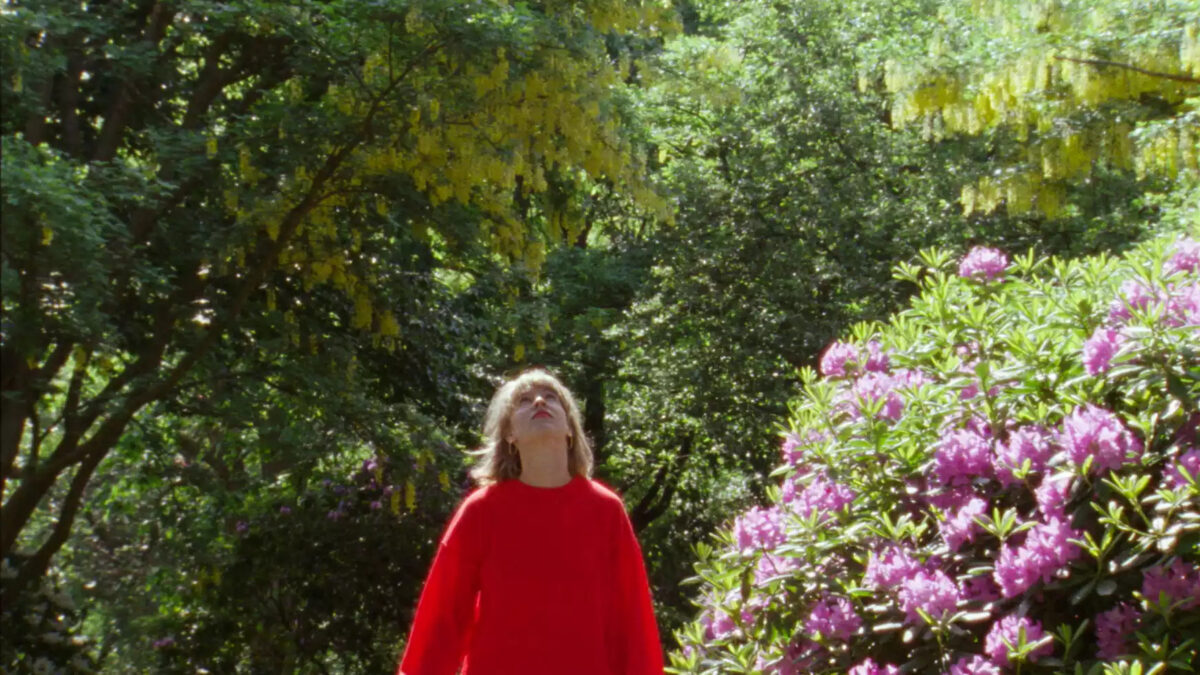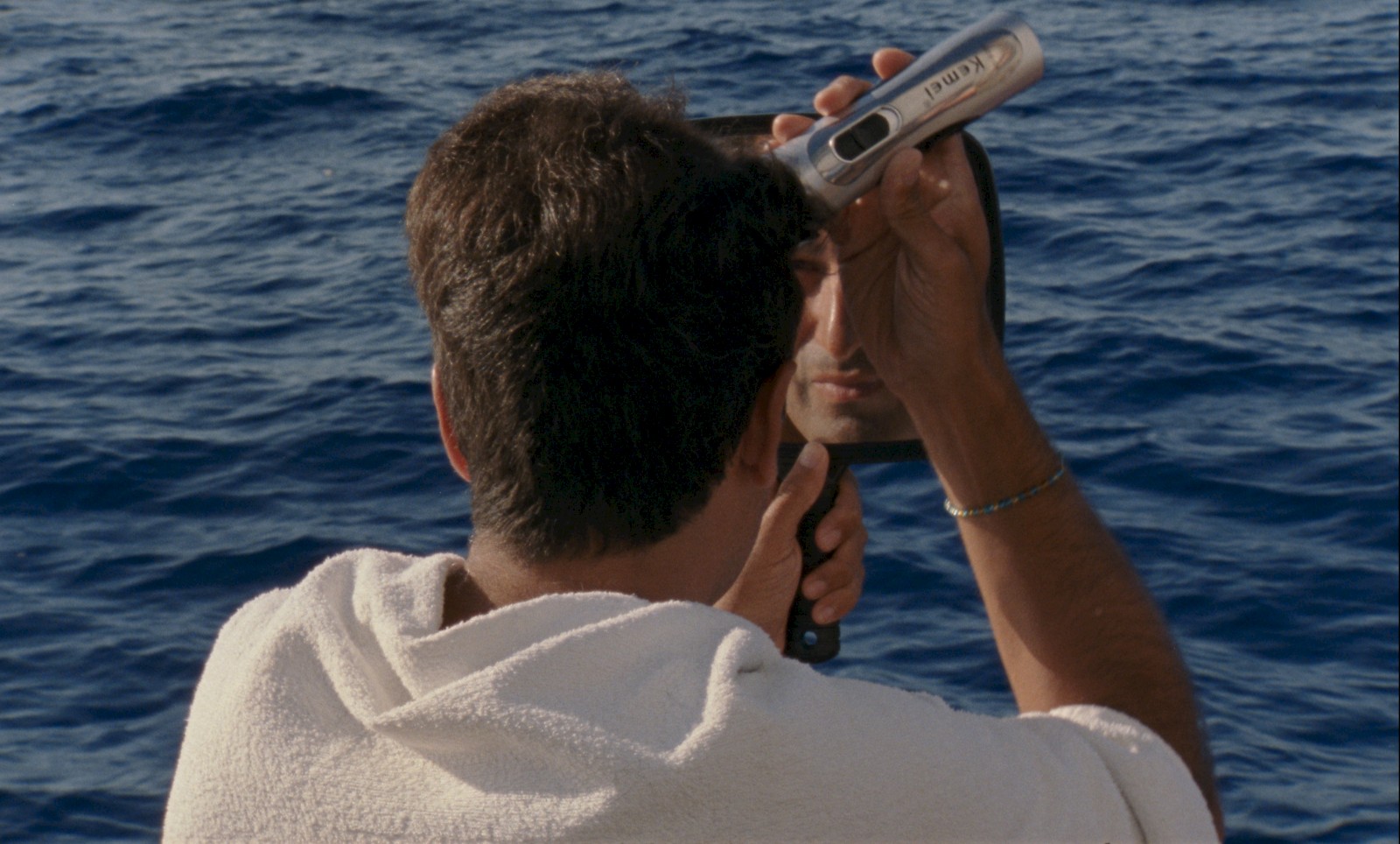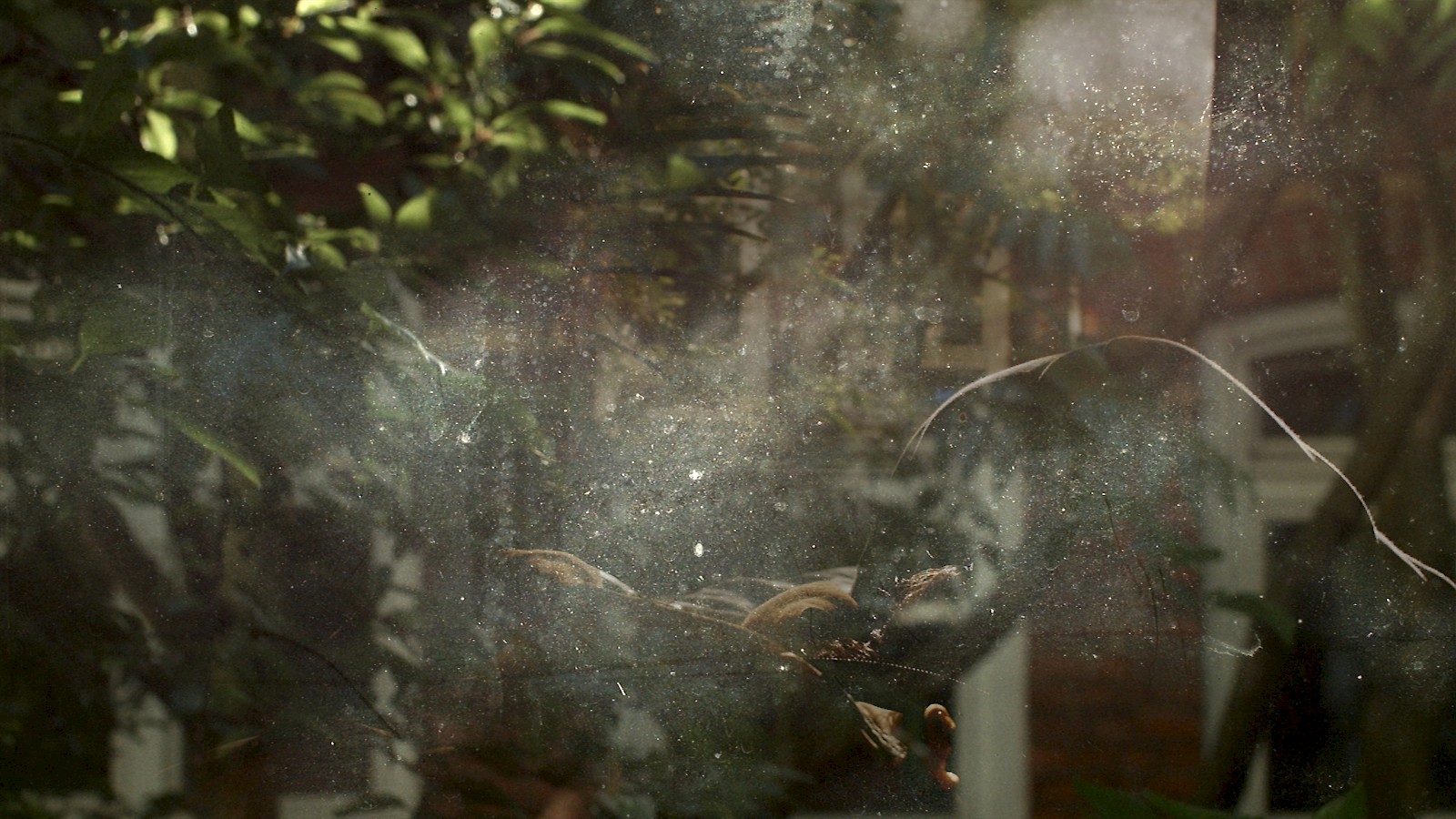Carried Along
Interview with Helena Wittmann
The elliptical, mesmerising cinema of Helena Wittmann was the subject of a Focus Programme at this year’s Drama International Film Festival, which prompted an in-depth exploration of the fascinating ways her short films sculpt time and facilitate unique encounters.

Helena Wittmann’s films unfold slowly and deliberately, attuned to the rhythms of both human presence and the environment. As a viewer, you’re invited to sink into them, to experience them with the same patience and curiosity they ever so generously offer in return.
Perhaps it is this experiential quality of Wittmann’s films—their ability to immerse viewers and transport them, even briefly, into her cinematic worlds—that has contributed to the German filmmaker’s success. Over the last two decades, her shorts and features have shown at prestigious festivals, her name a staple in the minds of the frequent film festival-dwellers.
In response to the Focus Programme of her shorts at Drama International Short Film Festival, Wittmann spared some time between her travels through Europe (always by train) to discuss her filmmaking practice, the associations prompted by the programme’s curation, and her broader reflections on cinema in general.
If there was something which surprised Wittmann when watching some of her films in Drama—a programme spanning her entire career, twenty years and counting, from her first finished film Alles ist Leise (2004), to her most recent short, A Thousand Waves Away—it was the feeling of rediscovery. “It was interesting to see that some aspects which define my practice now, were already present, in a way, [back] when I made my first films,” she admits. That is not to say her practice has remained completely unchanged or that she would have made the same artistic choices today, but rather it points to a continuity in her approach. The silver lining that runs through her work is a certain way of looking at things, of trying to understand them.
When describing her filmmaking process, Wittmann explains she never starts with a conceptual idea or form. Instead, she develops her films out of those situations that grab her attention. “I try to spend time in certain places,” she says, “to find out what it is exactly that interests me about them.” For instance, she recounts how while researching for her 2024 feature Human Flowers of Flesh, she spent time in the port city of Marseille, observing a recreation centre of the French Foreign Legion on the coast. As this example shows, form and content emerge for Wittmann from direct engagement. The way she speaks of that synergy reveals her creative process as one of getting acquainted, of getting closer, of understanding, grasping, and translating. It’s easy to see how her films treat meaning as accumulative and associative: like a silk print which gradually builds up in colour and depth, language, image, sound, and even the titles accumulate and interact in a non-hierarchical and open-ended way. They are never meant to arrive at a single truth, or be subordinated to narrative closure: “All these elements hold each other, but also go against each other in a way. They don’t compete, but they are equally powerful.”
Wittmann’s curiosity is also palpable on screen, in her finished works which effectively draw the audience into their worlds. In Wildnis (2020), for example, domestic interiors are charged with stories: The camera immerses us in the present lives of a retired couple while simultaneously layering their past adventures through Super 8 recordings, projected into and interwoven with the intimate spaces of their home. Locations and environments are never “neutral backdrops” to her films, Wittmann explains. “Sometimes I feel like there aren’t many options to film specific things. The place proposes something gently, and you have to dig in.”
If there is an element of inevitability to the films’ form, there remains a liberating openness to them—while the precise composition, sound, and rhythm feels grounding, the lack of closed narrative or linear causality is freeing. From Later, a five-minute exploration of the volatile moment of transition from day to night to Mimikry (2008), which observes playful imitation and interpretation, shot after shot offer us new beginnings and crossroads. By the time the films have ended, every audience member may have arrived at a different destination—given we are willing to let go a little bit. “I think things are alive only when they keep transforming. And if a film offers that—if you relate to it and make it yours, it stays alive,” Wittmann adds.

© Human Flowers of Flesh (Helena Wittmann, 2023)
However, slow films that are also meditative, and abstract in the way they deliver meaning can feel somewhat inaccessible to those unaccustomed. Such films ask for patience and encountering their kind requires a kind of recalibration: we must change what we expect from cinema and tune our brains to a more associative kind of work, than rational. But how can we learn to access such films? “Only through experience,” suggests Wittmann. “The question is how to encourage people.” She recalls a moment at Locarno Film Festival, where her latest feature Human Flowers of Flesh premiered in 2024. A woman from the audience approached her at a Q&A, visibly upset and hoping for an explanation, perhaps even a justification for the slow pace, the long sequences showing just water, or the blue cyanotypes in the film, to no avail. “I could understand that she was upset, but I could not help her—I could not give her the key to the film; to its meaning.”
The encounter itself is still available on YouTube, but what happened afterward remains the most compelling part of the story. “Afterwards, this woman kept talking to other people, gathered more insight, and eventually completely changed her mindset—not toward my film specifically, but in general. She started to explore all kinds of films in that direction.” Wittmann admits she finds those encounters truly remarkable. “That woman came with her own perspective. We met, and something happened. If she hadn’t been moved, she wouldn’t have come to me.” Her words recall the impression of a viewer in whom something was triggered—perhaps anger, or frustration—and it was real. For the German filmmaker, it’s evident that such unpredictable moments where friction becomes a form of connection are a testament to the power of cinema: instead of forming conclusions for us, it can shift the paths we arrive at them.
French philosopher Gilles Deleuze, in his book Cinema 1: The Movement Image, writes about a particular asset of the audio-visual medium, to let us enter thoughts which are not our own. Helena Wittmann’s films offer that in a distinctly intimate way. Take, for example, 21,3°C (2014) and Ada Kaleh (2018); each invites us into domestic settings which we can silently inhabit. In the former, the viewer’s gaze aligns with that of a room observing its inhabitants; in the latter, we seem to be drifting alongside the people themselves. What’s most striking about Ada Kaleh is perhaps the state of contemplation it invites us to inhabit. Guided by the camera’s orbiting movements, we adopt the slow, idle rhythm of those sharing the apartment, our attention circling the objects and trinkets, composing the space. The (human) figures in these films, and in Ada Kaleh especially, are not driven by conflict or resolution. Instead of transforming according to the rules of conventional narrative, they wander and drift, allowing the mere passing of time to become the primary event on screen.
The film’s title refers to the historical island of Ada Kaleh on the Danube—a place which once existed but is now preserved only in memory, submerged during the construction of a dam. The title, though very subtly, introduces a point of resonance for viewers familiar with the island’s history or those who seek it out. “I felt the film needed another connection; something to place the film in,” Wittmann explains. “Not an idea, exactly, but something that carries and envelops it,” she adds. Her research led her to islands which had disappeared, leaving behind only traces in collective imagination. Similarly, Wittmann seems to value the connections spectators build between such elements, in ways where meaning accumulates and recombines. Rather than dictating interpretation, she offers fragments and layers for viewers to weave together into different constellations.
Ada Kaleh exists outside conventional time and space, reinforced by its opening voice-over in Mandarin. A similar sense of temporal and spatial ambiguity reappears several years later in A Thousand Waves Away (2025). Language plays a key role here as well in creating this distance. If Ada Kaleh’s title and use of spoken language (dis)place the events into an ambiguous time and space, in A Thousand Waves Away, it’s the film’s title cards that create a similar effect. They tell of a society in “another time and place,” evoking that shared spatio-temporal ambiguity which runs through the filmmaker’s career. Both films remain rooted in reality, yet they exist slightly apart from it, drawing viewers into spaces which feel simultaneously familiar and elusive.

© Ada Kaleh (Helena Wittmann, 2018)
Yet, while Ada Kaleh embodies peaceful drifting and wandering, later films like A Thousand Waves Away and The Swell (a 2023 short commissioned by Film Fest Gent) carry a sense of urgency. “I shot the images for Waves in 2020 during the pandemic when there was this collective desire—but also an impossibility—to just go out,” Wittmann explains. By the time she was editing, the world had shifted again, accelerating and compressing around her. “I had to ask myself: What can I do?” And the answer was to reclaim some space to act, whatever ‘agency’ might mean in this context. The result is a tender balance between anxiety and a desire to “preserve beauty as a form of resistance,” as per her words. Nika Son’s sound design and hypnotic, repetitive composition intensify a sense of unease, while the camera focuses on fragile details: flower petals, the bark of a tree, and hands softly tracing those organic surfaces. Until these gestures of care, preservation and “trying to remember” through touch are interrupted by the protagonists’ sudden movement. They start to run, finally matching the urgency invoked by Son’s restless composition. It is this impetus of getting up that concludes the film. Not a resolution, but an opening. Finally: a space to act.
Wittmann’s films show how often she finds forms of resistance in unexpected places. The sea, for example, has been a central presence in short works like Waves and a defining environment in her features Drift (2017) and Human Flowers of Flesh. “The sea has been in my mind for a long while now,” she notes, “and now with The Swell, the desert has entered too. These places may offer resistance; they are nomadic, hostile at sight, not easy to tame and resist control. I’m interested in that.” Desert dunes, like sea waves, are an environment of constant fluctuations and unpredictability. Beyond aesthetics or material presence, this fluidity is mirrored in her artistic practice overall. While always organised and prepared, Wittmann’s way of working allows the possibility for something unexpected to happen; ellipses and space between. “That artistic approach translates into the film, it allows you to inhabit it, to be carried along or embraced. Of course, this is not the only way—there are a billion ways to make films—but for me it works like this,” she concludes.
“In a world where much no longer made sense,” reads the title card of A Thousand Waves Away. For Wittmann herself, making sense is situational and relational. When asked about what that looks like, she elaborates that “when something really makes sense, it’s often connected to being with others—sharing experiences, building relationships. That’s the space where I can act.” It’s obvious she values the focus on constructive engagement over “getting lost in destructive ideas,” as she calls it. Perhaps making sense is less about resolving uncertainty than about identifying where action, presence, and care are possible. And perhaps —though an interview with her can flow for much, much longer—this is as good a place as any to draw a gentle conclusion to our conversation.

